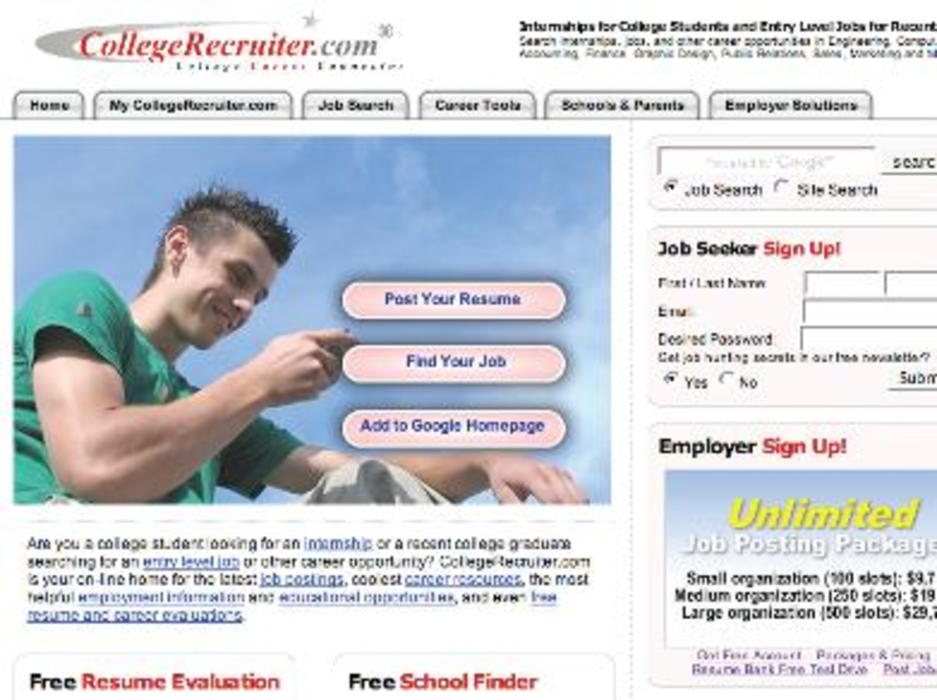Though facing a tighter job market in some sectors, career recruitment companies say they have yet to feel the pinch and, as a result, have not planned any major changes in their direct marketing efforts.
“Our business is so diverse that we balance out when the economy fluctuates,” says Darren McDougal, partner of marketing communications at Kaye/Bassman International Corp.
Right now, Kaye/Bassman is doing much better than it did last year, McDougal says. The company actively recruits in six industries including consumer goods and services, financial services, industrial, professional services, healthcare and life sciences and military. McDougal also attributes Kaye/Bassman’s “[getting] out” of residential construction recruiting a year and a half ago as helping it weather the storm.
Residential construction and financial activities related to home sales and mortgage lending are two sectors of the economy that have been hit the hardest by the recent woes, according to the ADP National Employment Report. The report says jobs in the non-farming private employment sector declined by 23,000 from January to February 2008.
Online advertisements for job vacancies in the US decreased slightly by 0.6% from March 2007 to March 2008, according to the Conference Board, a nonprofit business membership and research organization. This was the first year-over-year decline the Conference Board has seen since it began tracking online advertisements in 2005, the organization said.
“The recession has definitely reduced the amount of hiring that employers are doing,” says Steven Rothberg, president and founder of CollegeRecruiter.com, an Internet job board that works with employers who are trying to hire students for internships and recent college graduates for entry-level jobs.
“So we’re not doing quite as much business on the direct marketing side as we did a year ago,” he continues. “However, it’s only marginally down — it’s definitely not dramatically down.”
There are still a lot of baby boomers approaching retirement and there are not nearly enough Gen X-ers to replace them, Rothberg continues. “Gen Y recruiting right now is what I would call ‘recession resistant,’” he says.
Matt Cooper, VP of strategy and operations for recruitment process outsourcing firm Accolo, agrees that different sectors are feeling different effects. For example, hiring at software and technology companies, as well as in media, marketing and advertising has decreased.
“A couple of Accolo’s clients have slown down hiring expectations for the year,” Cooper adds. “There’s definitely some caution in the market right now.”
However, the engineering and manufacturing sector is “more recession proof,” and the sustainable energy industry is “going through the roof” in terms of hires, he says.
Despite the challenges in the US economy, Accolo has not changed its direct marketing tactics, which include utilizing its membership network to target and e-mail potential hires or people who could recommend qualified candidates, Cooper says.
Accolo also allows its membership base to post its job descriptions on social networking sites like Facebook or del.icio.us, giving the job posting “a life of its own,” he says.
Kaye/Bassman has migrated away from traditional print direct marketing efforts in the past few years and has switched almost exclusively to electronic communication, McDougal says. In particular, the company has been using video messaging in its e-mails. Each e-mail includes a call to action, encouraging the recipient to click on and open up an electronic brochure or to schedule a conference call.
The videos can also be posted to other job boards like Monster.com and CareerBuilder.com, he says. But the overall goal is to get people on the phone.
“Our electronic efforts are a door opener, but it really comes down to the relationships and the conversation,” McDougal says.








